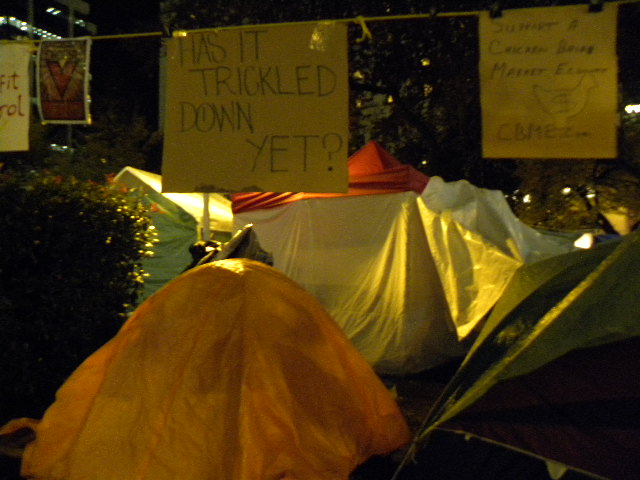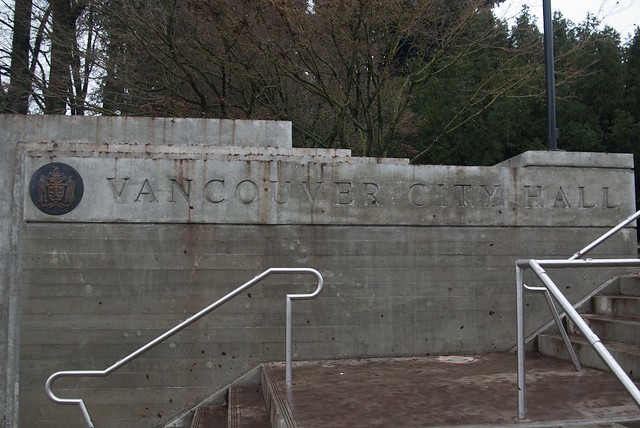“Life is to be lived, not controlled; and humanity is won by continuing to play in the face of certain defeat.”
― Ralph Ellison, Invisible Man
In a serial act of masochism I’ve tried over the last month to digest the daily froth whipped up by the usual suspects around the issue of Occupy Vancouver. But columnists Jon Ferry (The Province), Mark Hasiuk (Vancouver Courier), Bill Good (CKNW) and the editorial ravings of both Sun and Province have become so predictably reactionary and fear-based that reading them has become something akin to being water-boarded with angry spittle. The consensus among almost all is a mean-spirited act of wishful thinking: that the Occupy movement disappear, evaporate back into the realm of invisibility where it no longer interrupts the neat and tidy discourse of mainstream journalism. The Globe’s Gary Mason, on the other hand, has at least tried to take a measured approach. His columns wear the see-through veneer of fairness with a token attempt at empathy and an obligatory effort at writerly description.
“He was earnest and almost breathtakingly naive, but also charming in his own way,” Mason writes about an “archetypal occupier” in Tuesday’s column, Cold Comfort as Occupy Vancouver washed away with the rain. This is condescension wearing a mask of compassion and it’s typical of the good-cop pundits who think they can ease the consciences of those who want the occupiers to recede from view but without the aid of batons or pepper spray. In fact, “charming and breathtakingly naive,” would not be an inappropriate way to describe Mason’s own stance as he surveyed Monday’s dismantling of the VAG settlement. He gives himself and his privileged perspective away in his first sentence, comparing the colour of the “mud pit” left by the occupiers to a “dark French roast.” If this isn’t a joke, it should be. And do the rolled and folded tents bear an uncanny likeness to almond croissants? But even if Mason had been unconsciously pining in the rain for his Starbucks fix, he summoned enough feeling to grant the occupiers a few column inches: “We built a family in a pretty short period of time,” he quotes the earnest/naive occupier. “It wasn’t easy…But it’s a growing process and we’re not done yet. We will get through the winter and look forward to the spring.”



